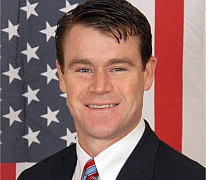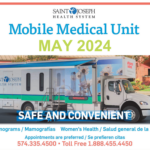 U.S. Senators Todd Young (R-Ind.) and Sherrod Brown (D-Ohio) this week led a group of Senators in urging President Trump to commit to meaningful US engagement during the United Nations General Assembly’s (UNGA) High-Level Meeting on tuberculosis (TB). The Senators said committing to not only sustained but expanded investment in the fight against this infectious disease is what’s needed to defeat TB in the US and around the world.
U.S. Senators Todd Young (R-Ind.) and Sherrod Brown (D-Ohio) this week led a group of Senators in urging President Trump to commit to meaningful US engagement during the United Nations General Assembly’s (UNGA) High-Level Meeting on tuberculosis (TB). The Senators said committing to not only sustained but expanded investment in the fight against this infectious disease is what’s needed to defeat TB in the US and around the world.
Senators Young and Brown penned the letter to the administration alongside Senators Maria Cantwell, Dan Sullivan, Robert Menendez, Shelley Moore Capito, Christopher A. Coons, Susan M. Collins, Sheldon Whitehouse, Marco Rubio, Elizabeth Warren, Roger F. Wicker, Bill Nelson, Thom Tillis, Joe Donnelly, John Barrasso, Ron Wyden, Johnny Isakson, Cory A. Booker, Lisa Murkowski, Thomas R. Carper, Benjamin L. Cardin, Chris Van Hollen, Tom Udall, Jack Reed, Patrick J. Leahy, Richard Blumenthal, Brian Schatz, Mazie K. Hirono, Jeffrey A. Merkley, Jeanne Shaheen, Gary C. Peters, Patty Murray, Tammy Baldwin, Angus S. King, Jr., Edward J. Markey, Tammy Duckworth, Kirsten Gillibrand, Robert P. Casey, Jr., Debbie Stabenow, Martin Heinrich, Richard J. Durbin, and Amy Klobuchar.
“It is in the interest of the U.S. that this High-Level Meeting succeed. The U.S. should remain a strong global leader in providing funding for effective TB programs and research, and not just sustain but expand its commitment. We stand ready to work with you to leverage the unprecedented opportunities for faster progress against TB presented by the High-Level Meeting,” the Senators wrote in their letter.
A copy of their letter can be found below:
September 4, 2018
President Donald J. Trump
The White House
1600 Pennsylvania Avenue, Northwest
Dear President Trump:
The United Nations General Assembly (UNGA) will hold a High-Level Meeting on tuberculosis (TB) on September 26, 2018 during the 73rd session of the UNGA in New York. We write to ask you to commit to meaningful U.S. engagement around this important event, and to ensure that it results in the urgent investments and actions needed to defeat TB.
TB and its drug-resistant forms constitute a global health crisis. TB is a curable, airborne disease that kills more people worldwide than any other infectious disease. In 2016, 10.4 million people became ill with TB, including 1 million children. In the same year, 1.7 million people died from this disease. TB is the leading killer of people living with HIV/AIDS, meaning that the spread of TB also undermines the substantial gains made through the U.S. President’s Emergency Plan for AIDS Relief (PEPFAR).
Drug-resistant TB is increasing in incidence and is significantly more expensive to treat than drug-sensitive TB. Most drug-resistant TB cases are now caused by direct person-to-person transmission, not by inappropriate treatment, making it considerably easier for drug-resistant TB to spread to new geographic areas. Stopping TB is an essential part of the agenda to fight anti-microbial resistance. New medications for drug-resistant TB, along with rapid diagnostics, are enabling faster progress against the disease. However, these new technologies are still underutilized, and US assistance is vital to speeding the adoption of new approaches.
In the United States, TB remains a serious problem with all 50 states continuing to report cases annually. According to the Centers for Disease Control and Prevention (CDC), there were 9,093 new cases of TB reported in the United States during 2017. In addition to these active cases, there are up to 13 million individuals in the U.S. with latent TB infection. The diagnosis and treatment of individuals with latent TB, who are at high risk of progression to active TB disease, would prevent an estimated 650,000 to 1,300,000 new cases of active TB. Furthermore, between 2005 and 2016, there were 1,293 cases of multidrug-resistant TB (MDR-TB) and 32 cases of extensively drug-resistant TB (XDR-TB) reported in the United States.
While the United States continues to make progress toward TB control, the pace of decline in new cases is too slow to achieve TB elimination in this century. New and expanded approaches in surveillance and control will be required to achieve TB elimination in the United States.
The U.S. Agency for International Development (USAID) TB program centers on building the capacity to end TB. The global fight against TB has scored impressive successes – an estimated 53 million lives have been saved from 2000-2016, showing an enormous return on investment. In the 23 priority countries, new cases have fallen by 20 percent since 2000 – more than twice as quickly as in countries that do not receive U.S. bilateral TB assistance.
The UN High-Level Meeting on TB could galvanize much faster progress against this deadly disease. In order to achieve this progress, we must ensure that the meeting leads to concrete actions addressing real needs. We ask you to emphasize the following priorities, as identified by the Stop TB Partnership and civil society:
1. Reach all people by closing the gaps on TB diagnosis, treatment and prevention;
2. Transform the TB response to be equitable, rights-based, and people-centered;
3. Accelerate development of essential new tools to end TB;
4. Invest the funds necessary to end TB; and
5. Commit to decisive and accountable global leadership, including regular UN reporting and review.
In addition, once a person with TB receives appropriate treatment, the disease rapidly becomes non-infectious. Yet, an estimated 4 million people are tragically “missed” and go untreated. At the High-Level Meeting, the world should commit to a clear, measurable goal to reach these untreated populations, diagnosing and treating a cumulative 40 million people by 2022.
Ending TB will require multi-sectoral solutions that bring stakeholders together. We therefore urge you to ensure that membership in the U.S. delegation demonstrates an all-government prioritization of TB, including Cabinet-level officials from relevant federal agencies (PEPFAR, National Institutes of Health, CDC, USAID, Biomedical Advanced Research and Development Authority, Food and Drug Administration, and Department of Defense).
It is in the interest of the U.S. that this High-Level Meeting succeed. The U.S. should remain a strong global leader in providing funding for effective TB programs and research, and not just sustain but expand its commitment. We stand ready to work with you to leverage the unprecedented opportunities for faster progress against TB presented by the High-Level Meeting.
Sincerely,
Senator Sherrod Brown
Todd Young
Maria Cantwell
Dan Sullivan
Robert Menendez
Shelley Moore Capito
Christopher A. Coons
Susan M. Collins
Sheldon Whitehouse
Marco Rubio
Elizabeth Warren
Roger F. Wicker
Bill Nelson
Thom Tillis
Joe Donnelly
John Barrasso
Ron Wyden
Johnny Isakson
Cory A. Booker
Lisa Murkowski
Thomas R. Carper
Benjamin L. Cardin
Chris Van Hollen
Tom Udall
Jack Reed
Patrick J. Leahy
Richard Blumenthal
Brian Schatz
Mazie K. Hirono
Jeffrey A. Merkley
Jeanne Shaheen
Gary C. Peters
Patty Murray
Tammy Baldwin
Angus S. King, Jr.
Edward J. Markey
Tammy Duckworth
Kirsten Gillibrand
Robert P. Casey, Jr.
Debbie Stabenow
Martin Heinrich
Richard J. Durbin
Amy Klobuchar
CC: The Honorable Michael Pompeo, Secretary of State
CC: The Honorable Alex Azar, Secretary of Health and Human Services














